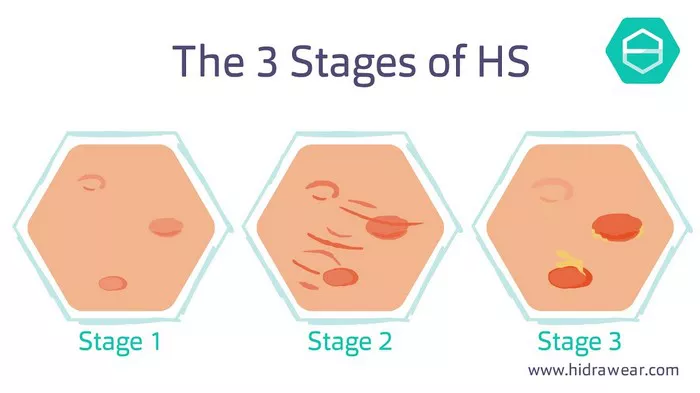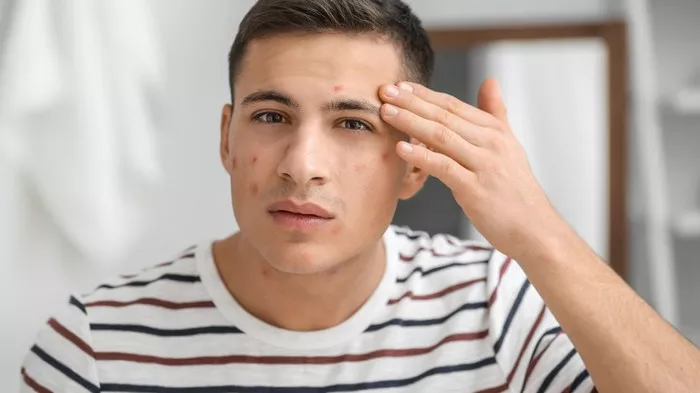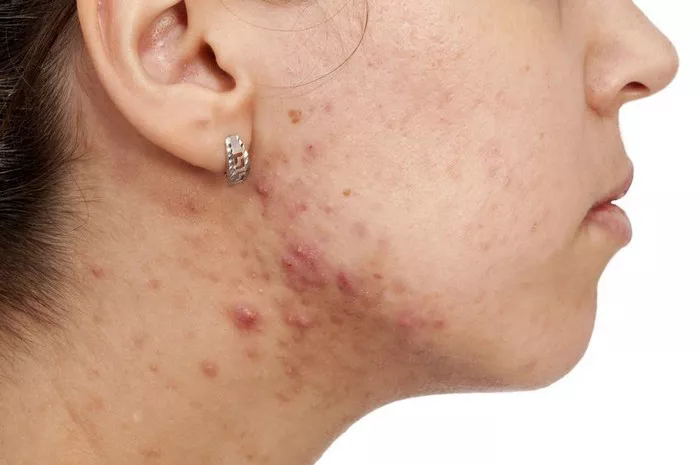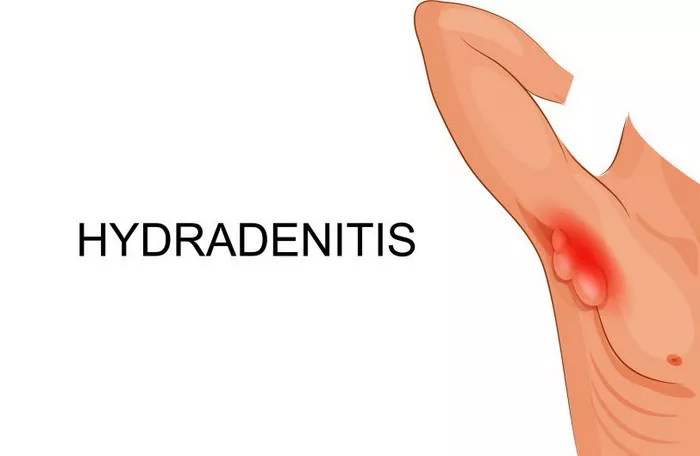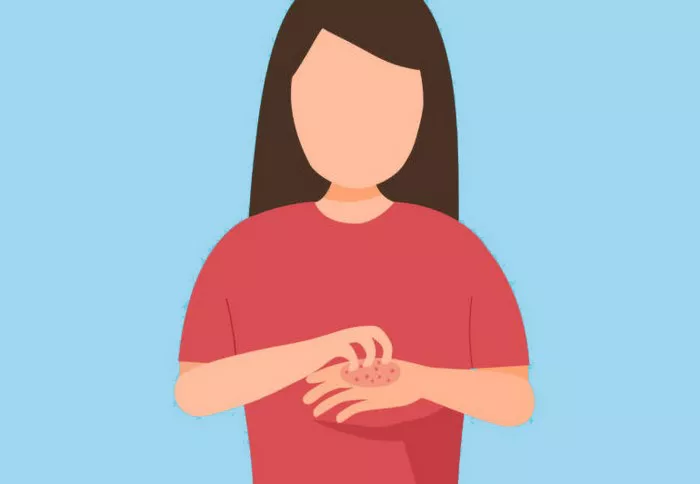Hidradenitis Suppurativa (HS) is a chronic skin condition that affects many people worldwide. It can be painful and challenging to manage. Understanding what an HS flare-up is, its symptoms, triggers, and management strategies can help those affected deal with the condition better.
Understanding Hidradenitis Suppurativa (HS)
Hidradenitis Suppurativa is a skin disorder that causes painful lumps under the skin. These lumps often occur in areas where skin rubs together, such as:
- Underarms
- Groin
- Buttocks
- Inner thighs
- Around the breasts
The condition is often confused with acne, but HS is different. It is a result of inflammation of the hair follicles and is characterized by recurrent flare-ups.
What is an HS Flare-Up?
An HS flare-up refers to a sudden worsening of symptoms. During a flare-up, individuals may experience:
Painful lumps: These can be red, swollen, and tender to touch.
Abscess formation: The lumps may fill with pus, leading to abscesses.
Drainage: Pus may drain from the lumps, leading to foul-smelling fluid.
Scarring: Over time, repeated flare-ups can cause scarring and skin changes.
Inflammation: The affected areas may become inflamed and swollen.
Flare-ups can vary in severity and duration. Some may last a few days, while others can persist for weeks.
Symptoms of HS Flare-Ups
Recognizing the symptoms of an HS flare-up is crucial for effective management. Common symptoms include:
1. Pain and Discomfort
Many people report significant pain during flare-ups. This can make it difficult to perform daily activities.
2. Red, Swollen Areas
The affected skin often appears red and swollen. This is a sign of inflammation.
3. Development of Abscesses
Abscesses may form, filled with pus. These can be extremely painful and may require medical treatment.
4. Drainage of Fluid
Pus may drain from the abscesses. This drainage can have a foul odor, which can be distressing for those affected.
5. Itching
Some individuals experience itching in the affected areas, adding to their discomfort.
6. Scarring
Repeated flare-ups can lead to scarring. The skin may become thickened or develop darkened areas.
Triggers of HS Flare-Ups
Identifying and avoiding triggers can help manage HS flare-ups. Common triggers include:
1. Friction and Sweat
Areas prone to friction and sweat are more likely to flare up. This includes areas where clothing rubs against the skin.
2. Hormonal Changes
Hormonal changes, such as those during menstruation, can trigger flare-ups. Many women notice that their symptoms worsen at certain times of the month.
3. Heat and Humidity
High temperatures and humidity can exacerbate symptoms. Keeping the skin cool and dry is essential.
4. Stress
Emotional stress may also trigger flare-ups. Stress management techniques can be beneficial.
5. Smoking
Smoking is linked to more severe forms of HS. Quitting can help reduce the frequency of flare-ups.
6. Certain Foods
Some people report that specific foods, like dairy or processed foods, can trigger their symptoms. Keeping a food diary may help identify triggers.
Diagnosis of Hidradenitis Suppurativa
Diagnosing HS can be challenging. Doctors typically rely on a patient’s history and physical examination. In some cases, they may conduct tests to rule out other conditions.
1. Medical History
The doctor will ask about symptoms, family history, and any previous skin conditions.
2. Physical Examination
A thorough examination of the affected areas will be performed. The doctor will look for characteristic signs of HS, such as abscesses and scarring.
3. Additional Tests
In some cases, the doctor may order additional tests, such as:
Blood tests: To check for signs of infection or other underlying conditions.
Skin cultures: To rule out bacterial infections.
Treatment Options for HS Flare-Ups
Managing HS flare-ups often requires a combination of treatments. Here are some common options:
1. Topical Treatments
Antibiotic creams: These can help reduce bacteria and inflammation in the affected areas.
Corticosteroid creams: These can help reduce inflammation and relieve itching.
2. Oral Medications
Antibiotics: Oral antibiotics can help manage infections and reduce flare-ups.
Hormonal therapies: These may be effective for women whose symptoms are linked to hormonal changes.
Immunosuppressive drugs: In severe cases, medications that suppress the immune system may be necessary.
3. Surgery
In cases where flare-ups are severe or recurrent, surgical options may be considered:
Incision and drainage: This can relieve pain and promote healing during a flare-up.
Excision: Removing the affected skin can help prevent future flare-ups.
4. Lifestyle Changes
Making certain lifestyle changes can help manage symptoms:
Maintain a healthy weight: Excess weight can increase friction in affected areas.
Wear loose-fitting clothing: This can reduce friction and sweating.
Practice good hygiene: Keeping the skin clean and dry is crucial.
5. Alternative Therapies
Some individuals find relief from alternative therapies, such as:
Acupuncture: Some report that acupuncture helps reduce pain and inflammation.
Dietary changes: A balanced diet rich in anti-inflammatory foods may be beneficial.
Coping with HS Flare-Ups
Living with HS can be emotionally challenging. Coping strategies can help individuals manage their condition better:
1. Education
Understanding HS can empower individuals to make informed decisions about their health. Learning about the condition can reduce anxiety.
2. Support Groups
Joining a support group can provide emotional support and practical advice from others who understand the condition.
3. Counseling
Speaking with a mental health professional can help manage the emotional impact of HS. They can provide coping strategies and support.
4. Stress Management
Practicing stress-reduction techniques, such as meditation or yoga, can help minimize flare-ups.
Conclusion
Hidradenitis Suppurativa flare-ups can be painful and challenging, but understanding the condition can empower those affected to take control of their health. By recognizing symptoms, identifying triggers, and exploring treatment options, individuals can manage their condition more effectively. Seeking support and practicing self-care are essential steps in coping with HS. If you suspect you have HS or are experiencing flare-ups, consult a healthcare provider for proper diagnosis and treatment.
Related topics:

